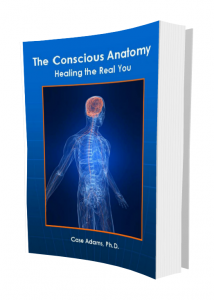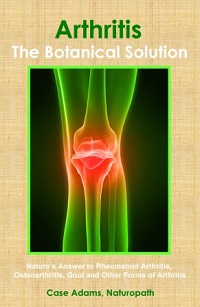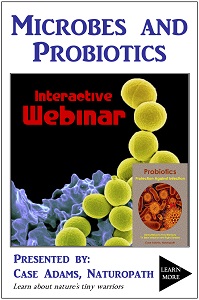Tai Chi Beats Conventional Treatments for Blood Pressure
Tai Chi significantly lowers hypertension, and even may reduce blood pressure greater than medication – finds a team of university researchers after an analysis of multiple clinical trials.
The researchers – from the China Academy of Chinese Medical Sciences and Tsingua University in Beijing – reviewed 206 clinical studies. After excluding those with poor protocols, 18 randomized clinical trials were analyzed and compared for their results. A total of 1371 hypertensive patients were studied.
The researchers included only trials with patients with systolic blood pressure greater than 140 mmHg and/or diastolic blood pressure greater than 90 mmHg.
The meta-analysis of these clinical trials showed overwhelmingly positive results for the reduction of diastolic and systolic blood pressure among those patients using Tai Chi.
Of the 18 clinical trials, 14 of them compared Tai Chi to “routine care” which included exercise and dietary protocols. Three trials compared Tai Chi and medications to medications alone, and one trial compared Tai Chi alone to hypertensive medications alone.
In this article
Systolic and Diastolic Blood Pressure Studied with Tai Chi
Among 10 of the clinical trials that studied systolic blood pressure, Tai Chi reduced systolic blood pressure greater than the routine care groups by an average of more than 12 mmHg. Among those four clinical trials that measured diastolic blood pressure, those practicing Tai Chi bettered routine care reduction in diastolic blood pressure by more than 6 mmHg.
In the one clinical trial that compared Tai Chi to antihypertensive drugs – reserpine or rutin tablets – the Tai Chi group had more than 14 mmHg reduction in systolic blood pressure over the group given medication.
And in two trials that compared Tai Chi plus antihypertensive drugs to the antihypertensive drugs alone using systolic blood pressure measurements, the Tai Chi groups had an average of 9.34 mmHg greater reduction in systolic blood pressure than the groups taking the drugs alone.
And in two trials that measured diastolic blood pressure when comparing Tai Chi plus antihypertensive drugs to antihypertensive drugs, the Tai Chi groups had an average of 7.16 mmHg less than the groups taking the drugs alone.
The period of treatments among these studies ranged from two months to 60 months. There were three formats of Tai Chi studied among these trials. They included the 24-form Tai Chi movement, the 48-form movement Tai Chi format, and the Yang Tai Chi format – also typically with 48-forms. The data made it difficult to measure which form was more beneficial – as all forms appeared to provide similar benefit.
Five Year Follow-up Shows Tai Chi Helps Heart
In one of the trials, a five-year follow-up was conducted. This showed continued positive effects of Tai Chi that translated to heart health benefits. This trial in particular had two cardiovascular deaths among the control group, while there were no serious cardiovascular events in the Tai Chi group.
Other studies have confirmed Tai Chi’s cardiovascular benefits. A study from the Chang Gung University of Science and Technlogy found that Tai Chi helped reduce not only blood pressure but improved cholesterol parameters. And a review from the University of Nevada found that Tai Chi exercise “may help prevent and even reverse the progression of cardiac disease.”
While difficulty remains among the scientific community with regard to creating blindedness among Tai Chi groups – this is balanced by the fact that blood pressure has been specifically tied to mental stress, a derivative of awareness. Awareness of ones efforts to reduce stress is integral to achieving stress reduction.
But when multiple studies randomly assign patients and compare a particular exercise to other forms of care – including medications – the results are undeniable. And it should go without saying that Tai Chi comes with no adverse side effects – and a multitude of positive side effects.
REFERENCES:
Jie Wang, Bo Feng, Xiaochen Yang, Wei Liu, Fei Teng, Shengjie Li, and Xingjiang Xiong. Tai Chi for Essential Hypertension. Evid Based Complement Alternat Med. 2013 (2013): ID 215254.
Lee EN. The effects of Tai Chi exercise program on blood pressure, total cholesterol and cortisol level in patients with essential hypertension. Taehan Kanho Hakhoe Chi. 2004 Aug;34(5):829-37.
Lin CL, Lin CP, Lien SY. The effect of Tai Chi for blood pressure, blood sugar, blood lipid control for patients with chronic diseases: a systematic review. Hu Li Za Zhi. 2013 Feb;60(1):69-77.
Wang J, Xiong X. Evidence-based chinese medicine for hypertension. Evid Based Complement Alternat Med. 2013;2013:978398.
Lo HM, Yeh CY, Chang SC, Sung HC, Smith GD. A Tai Chi exercise programme improved exercise behaviour and reduced blood pressure in outpatients with hypertension. Int J Nurs Pract. 2012 Dec;18(6):545-51.
Yi XB, Yin J, Zheng JA, Prevention and treatment of hypertensive patients by Tai Chi. Shanghai Ti Yu Xue Yuan Xue Bao. 1990; 14:23–25.
Dalusung-Angosta A. The impact of Tai Chi exercise on coronary heart disease: a systematic review. J Am Acad Nurse Pract. 2011 Jul;23(7):376-81.



















